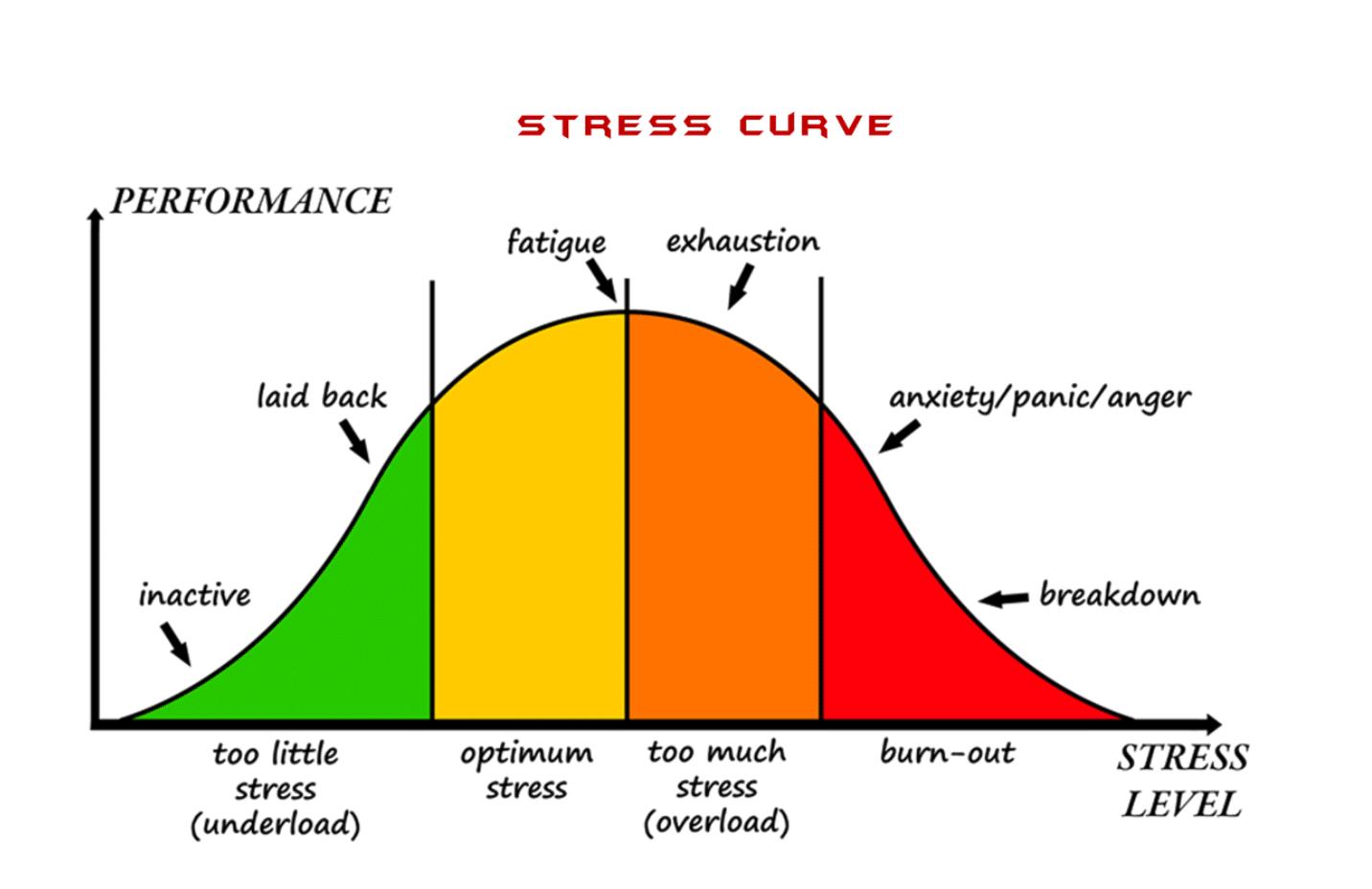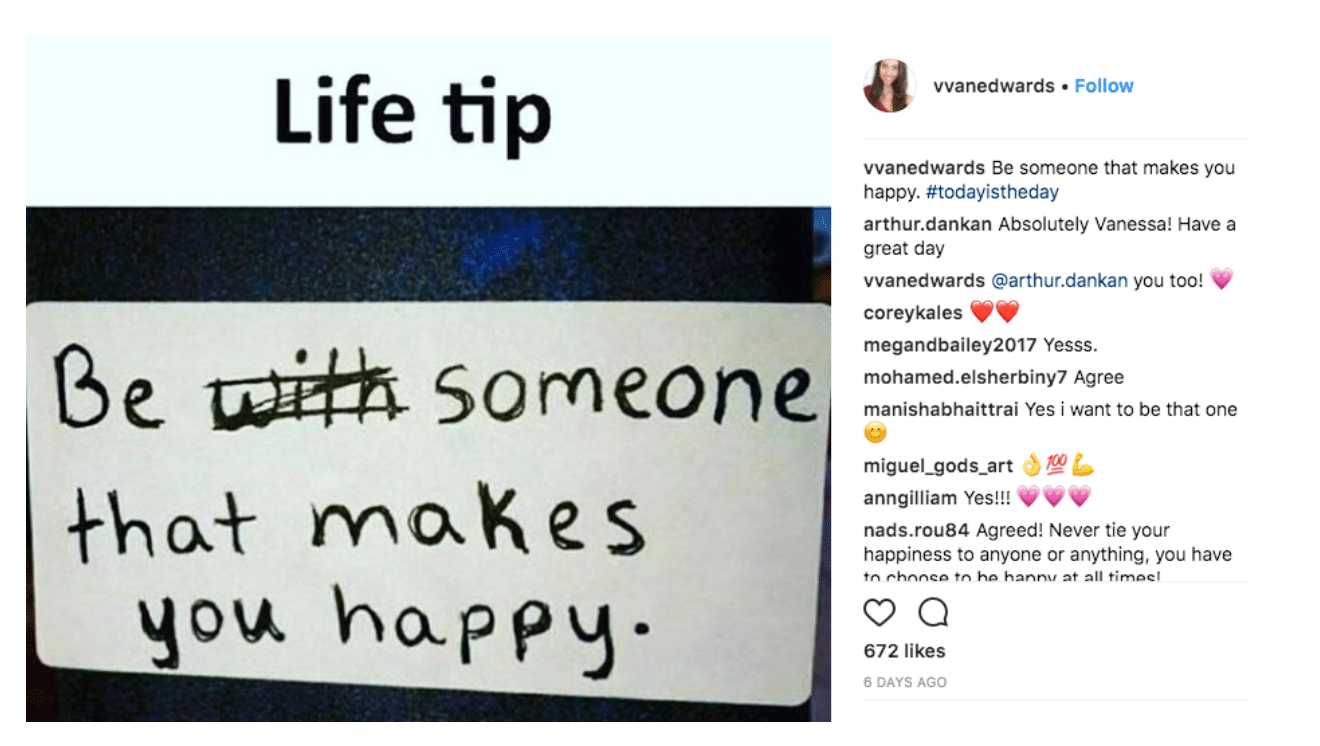Before every show, TV host Stephen Colbert has a ritual. And it’s a little superstitious.
- He rings a little bell in his bathroom.
- As he walks toward the stage, he waits for one of his writers to tell him, “Squeeze out some sunshine.”
- He does a two-handed shake with his production assistant.
- He gets one Altoid.
- He stands in place just offstage and slaps himself in the face twice.
- He gets one particular style of Bic pen (assistants scour office supply stores looking for them), chews on the cap and puts it back in the box.
- Finally, he makes eye contact with his band leader before walking on stage.
If it works for Colbert, might it work for you? Well…not the slapping yourself part, but definitely the psych up routine!
This might sound crazy, but the most successful people have professional warm-up routines. I’m going to share the science of how to get yourself psyched up. Even Rockettes have weird little performance rituals (peanut butter sandwich anyone?). I think EVERYONE should have a pre-performance warm-up routine.
Professional athletes have warm-ups before every game and practice, so why don’t professionals have warm-ups before meetings, pitches and negotiations?
Daniel McGinn, author of Psyched Up: How the Science of Mental Preparation Can Help You Succeed, calls professional warm-ups “Pre-performance Rituals.”
Pre-performance Rituals: A routine or habit a performer, athlete or professional does to enhance their performance, get their mindset right and beat nerves.
McGinn argues that we all should create our own Pre-performance Rituals to have more day-to-day success. This is not only a way we can prepare ourselves for better performance, but it’s also a way to combat nerves. My goal is helping you find the sweet spot between excited and energetic before reaching anxious or stressed.

This is called a stress curve. We perform at our best when we feel excited or aroused, but too much stress and we get exhausted or burnt-out. A great Pre-performance Ritual gets you to the optimum level of excitement.
Here are some ideas for setting up your ritual.
Use Imagery
Sometimes, all we need is a little reminder of how it feels to be successful. Researcher Gary Latham wanted to know if those cheesy inspirational posters actually work. He set up a study at a university call center where students call alumni to ask for donations. His research team gave 54 employees an info packet outlining the day’s agenda of calls. Half of the packets contained an inspirational photo of a runner crossing a finish line. Could a silly photo of a runner help callers earn more money?
The amazing answer is yes. The results were unmistakable– callers who saw the photo raised more money those who didn’t see the photo. This is ridiculous! The employees weren’t even engaged in a physical activity such as running, but somehow the photo helped them. Why? It reminded them of the feeling of pride. And workers who take pride in their work do better work.
Action Step: Think of the feeling you want to have and use imagery to remind yourself of it. This doesn’t have to be cheesy posters (although it can be!) You also can follow people who inspire you on Instagram or Twitter or watch inspirational YouTube videos.

Remove Triggers
What makes you nervous? Who makes you nervous? McGinn says we can combat nerves in three ways:
- Situational Selection: This is when you are more selective with situations that cause you anxiety. For example, I don’t do well in really loud networking events or conference room floors. Whenever I speak at big trade shows or conferences, I always ask to come in the back so I can prepare and relax backstage first. Can you modify WHERE you get ready?
- Situation Modification: What if you you can’t completely change the environment? You can optimize it for fewer triggers. Maybe you work in a loud open office, so you can’t have a private room to prep before a meeting. Instead, you can get noise-canceling headphones or take a side conference room. How can you change your environment for fewer triggers?
- Attentional Deployment: If you can’t control anything about your environment, then you need to distract yourself from the anxiety-provoking stimuli. This is when it is great to bring a partner or colleague to prep with before a meeting, to have videos to watch, or a great playlist you can listen to.
Harness a Little Rivalry
This is the most controversial study in Psyched Up. McGinn argues that a little competitive rivalry can rev your engine. Researcher Norman Triplett analyzed data from more than 2,000 bicycle races. He found that when cyclists rode next to a competitor, they were on average 34.4 seconds faster than riders who competed alone.
This makes sense! If you can see your competitor riding ahead of you, you can aim to match their speed. If you feel a competitor on your flank, you push to go a little faster. Does this work in business? I think yes, with a healthy dose of competition. This is why sales leaderboards in an office with friendly competition can be motivating. Looking at your stats and sales compared to other companies or departments also can spur you to work just a little harder. If you need a little extra juice in your Pre-performance Routine, you can take a glance at your competitors.
Action Step: Consider juicing some healthy competition for yourself or your team:
- Put up target numbers and leaderboards
- Include competitors’ rankings or numbers in your sales reports
- Look up your competitors’ goals and see how they compare to yours
Power Nostalgia
One of our most powerful tools for motivation is free. It’s using the power of our memories. Memories are free and never-ending. Columbia professor Adam Galinsky did a study where he asked a group of interviewees to write for a few minutes before taking part in a mock interview.
- One group wrote about a time they felt powerful
One group wrote about a time they felt powerless
The results were clear: Those who wrote about feeling powerful felt calmer during their interview and were rated better by their interviewers. One of the best things you can do is use powerful nostalgia to pump yourself up. Think about a time you felt successful, powerful and great. This can help you bring your previous feelings into your current situation. You even can read kind emails or testimonials from previous bosses, clients or students to remind you about the great work you can do.
Anxious is Good
Do you think stress is bad? Nerves are bad? Alison Wood Brooks has done research to show that your perspective on nerves matters more than the actual nerves. In fact, feeling nervous and feeling excited are VERY similar emotions. This kind of reframing is called reappraisal.
Researcher Jeremy Jamieson did a study in 2010 with GRE students. Before a practice exam, Jamieson had half of his students read a statement to help them reframe their nervousness. Here was the statement:
“People think that feeling anxious while taking a standardized test will make them do poorly on the test. However, recent research suggests that arousal doesn’t hurt performance on these tests and can even help performance… people who feel anxious during a test might actually do better. This means that you shouldn’t feel concerned if you do feel anxious while taking today’s GRE test. If you find yourself feeling anxious, simply remind yourself that your arousal could be helping you do well.”
The other students read nothing and just had to take the test. After reading that one statement, the primed students scored 55 points higher on their practice exam. Here’s where it gets even better–this effect stuck around for the REAL GRE test more than a month later. Students who had read the arousal statement scored 65 points higher than the other group.
Action Step: When you feel nervous, reframe it. Tell yourself that nerves are a form of excitement and that excitement helps you perform better.
No Defensive Pessimism
Let me tell you what you shouldn’t do. Sometimes when we are trying to encourage ourselves, we think about worst-case scenarios. We say “if worst comes to worst” or we think about what could happen if we don’t perform well. This is called defensive pessimism and it doesn’t work. It might seem like it can help your nerves, but it actually primes you for poorer performance and dampens that good, excited energy. If power nostalgia helps you think about positive outcomes, defensive pessimism makes you think about negative ones. So whatever you do, don’t think about the worst case; think of the best case! You can do it!
Anchor Your Power Pose
How to psych yourself up ties to stance—use a power pose to ignite confidence fast. This tip locks in a physical trigger with tables to guide you.
Table 1: Poses and Effects
| Pose Type | How To | Example Use | Why It Fires You Up |
|---|---|---|---|
| Wide Stance | Feet apart, hands on hips | Before a pitch | Signals dominance, focus |
| Tall Reach | Arms up, chest open | Pre-meeting stretch | Lifts mood, expands energy |
| Firm Ground | Sit straight, feet flat | Desk prep | Roots calm, steady vibe |
Table 2: Pose Tweaks
| Hiccup | Fix | Adjust This | Outcome |
|---|---|---|---|
| Feel small | Widen base | Step legs out more | Claims space, lifts esteem |
| Tense up | Soften shoulders | Drop them down | Eases jitters, flows power |
| Slouch creeps in | Reset upright | Pull spine tall | Sharpens presence |
A power pose flips your mindset—body leads, head follows. Table 1 maps poses: wide stance for bold starts, tall reach for big vibes, firm ground for cool control. Table 2 tunes it: shrinking? Spread out. Tight? Loosen up. Slumping? Snap tall. It’s not just standing—it’s owning it. Hold a pose for 30 seconds before your next big thing, and energy spikes. Test it—pick one, feel the shift.
Action Step: Before your next task, pick 1 pose from Table 1 (e.g., “Wide Stance”), hold it for 30 seconds, and note your confidence boost within 5 minutes.
Bonus Idea: Create a Performance Playlist
The last idea is one you might already do but need to hype up even more. Music. Oh yes, music is a great motivator. In fact, I created an entire video on how to make your performance playlist. We are here for you, rooting you on!

